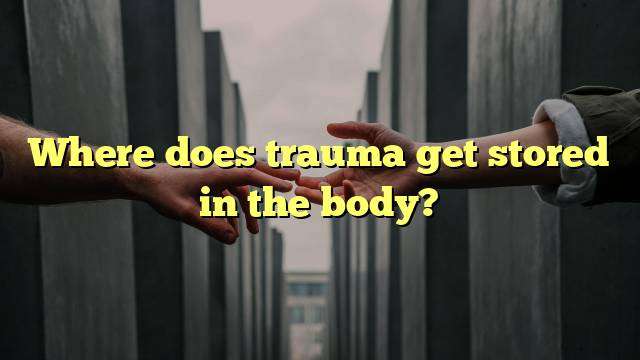Understanding Trauma and Its Impact on the Body
Trauma is a term used to describe a deeply distressing and disturbing experience. It is a response to an event or a situation that overwhelms an individual’s capacity to cope with it. Trauma can be caused by a single event, such as a car accident or a natural disaster, or it can be the result of ongoing abuse or neglect. Regardless of the cause, trauma can have a profound and lasting impact on an individual’s physical, psychological, and emotional health.
How Trauma is Stored in the Body
When an individual experiences trauma, their body stores the memory of that experience in the form of physical and psychosomatic symptoms. Research has shown that these symptoms can be triggered by a variety of stimuli, including thoughts, sounds, smells, or visual cues that are similar to the traumatic event.
The somatic memory of a traumatic event is stored in the body’s nervous system, which includes the brain, spinal cord, and peripheral nerves. This somatic memory is expressed as changes in the body’s biological stress response, such as increased adrenaline, cortisol, and other hormones. These physiological changes can manifest in various physical symptoms, such as headaches, stomachaches, muscle tension, and increased heart rate.
The Impact of Trauma on the Mind and Emotions
In addition to its physical effects, trauma can also have a significant impact on an individual’s mental and emotional health. Many people who have experienced trauma report feeling overwhelmed, numb, and disconnected from their emotions. They may have difficulty regulating their emotions and have difficulty trusting others.
Trauma can also lead to feelings of guilt, shame, and self-blame. Individuals may feel guilty for not being able to protect themselves or for being powerless in the face of the traumatic event. They may also feel ashamed of their inability to cope with the trauma and blame themselves for the traumatic experience.
The Impact of Trauma on Relationships
The impact of trauma can also extend to relationships with others. People who have experienced trauma often find it difficult to connect with others on an emotional level and may struggle to form healthy relationships. They may experience difficulty trusting others, difficulty with communication, and difficulty with intimacy.
In addition, trauma can also lead to an increase in aggressive or defensive behaviors. Individuals may become easily agitated or start to isolate themselves from others. These behaviors can impact relationships and make it difficult for individuals to form meaningful connections with others.
How to Treat Trauma
The good news is that there are a variety of treatments available for individuals who have experienced trauma. These treatments can help individuals process the trauma and learn healthier coping strategies.
Psychotherapy is one of the most common and effective treatments for trauma. This type of therapy focuses on helping individuals identify and process their traumatic experiences and learn healthier coping strategies. Psychotherapy can also help individuals build healthier relationships with others and develop more positive self-esteem.
In addition to psychotherapy, medication can also be used to treat trauma. Medication can help to reduce the symptoms of trauma, such as anxiety and depression, and can be used in combination with psychotherapy to provide a more comprehensive treatment.
Conclusion
Trauma is a deeply distressing and disturbing experience that can have a profound and lasting impact on an individual’s physical, psychological, and emotional health. Trauma is stored in the body’s nervous system and is expressed as changes in the body’s biological stress response. It can also have a significant impact on an individual’s mental and emotional health and their relationships with others. Fortunately, there are a variety of treatments available to help individuals process their trauma and learn healthier coping strategies.
